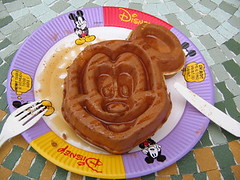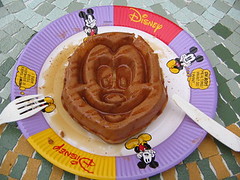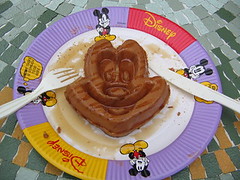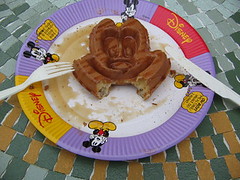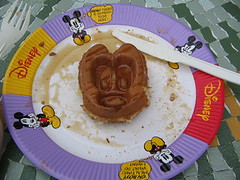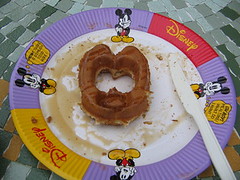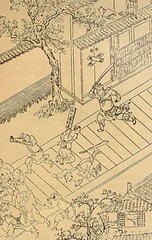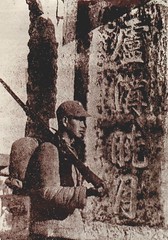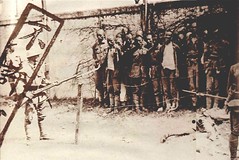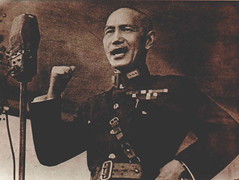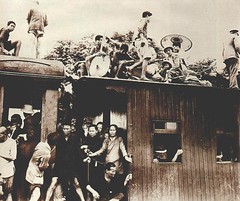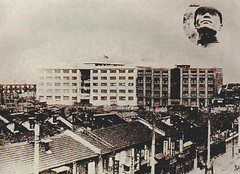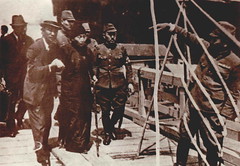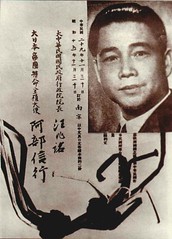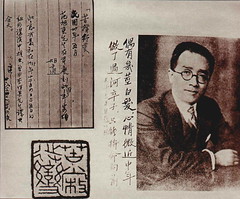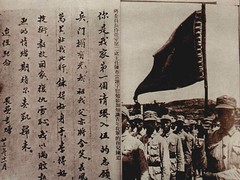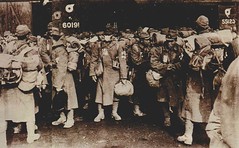-
今天在图书馆查文献的时候,无意中看到一本国民党出版的纪念七·七事变的图集,正好要到地下一层扫描些东西,所以就顺便扫了几幅图片并英语的文字说明,其中有些解释我觉得是错误的,譬如蒋介石发表讲话应该是在庐山而不是卢沟桥,但是为了保持照片及文字的原始风格,没有对其进行改动。点击可看大图。
<
p>
The Marco Polo Bridge (Lugou Bridge) is a pretty structure. Next to it stands an inscription by the Qing dynasty's Qianlong emperor, and it was a renowned place much loved by cultivated people. In the 13th century, Marco Polo visited here, thus the Western name for this bridge. In 1937, Japanese troops said to be "on maneuvers" were allegedly fired on--it has never been clear by whom--and one Japanese soldier went missing. The Japanese attacked and killed the bridge guards, sparking an eight-year war with China.
<
p>
Whenever Japan occupied a city, it would round up so-called "suspicious citizens," imprison them, and then massacre them. After the war, the Japanese government stamped "not permitted" on photos like this one in its possession, strictly forbidding outsiders to see them.
<
p>
After the incident, the Chinese government, trying to prevent all-out war, called for negotiations and a mutual withdrawal of troops, but Japan refused. On July 7, Chiang Kai-shek spoke at the bridge, saying that China sought peace, but not surrender, and was prepared for war, but did not seek war. On July 28, the Japanese launched a major attack, Chinese troops of the 29th Army resisted fiercely, and the war had begun in earnest.
<
p>
After Shanghai fell, crowds of people boarded trains and fled to Nanjing . Their hopeless eyes fill one with pity. The number of ordinary citizen s killed in the war has been estimated at 4.4 million, with 4.7 million injured.
<
p>
Full-scale fighting began in East China earlier than in North China. Aft er the September 18 Incident (in Manchuria in 1931), and the January 28 Incident (near Shanghai) the following year, Japanese forces launched attacks around Shanghai, paving the way for an all-out battle f or the city later on. Shanghai fell in October of 1937. Eight hundred men led by Hsieh Chin-yuan were ordered to hold the Sihang warehouses at Xiabei to cover the retreat of the Chinese army. On September 28 occurred the nowfamous story of how girl scout Yang Huei-min braved death to swim across the river to deliver a national flag to inspire the isolated soldiers. The photo shows the ware houses; Hsieh is in the inset at the upper right.
<
p>
The Japanese expended much effort to convince Wang Ching-wei to organize his puppet government. Even Wang's 80-year-old mother was dragged in to "persuade" him.
<
p>
Wang Ching-wei is one of the most controversial figures in modern Chinese history. In the first half of his life he was a hero of the Republican revolution. Later, while still vice-secretary general of the KMT, he agreed to cooperate with the Japanese and organized a puppet Chinese government in Nanjing, becoming a "traitor." But some historians argue that Wang's move provided the ordinary people of the occupied areas, surrounded by the Japanese, with some measure of security.
<
p>
The US declared war on Japan after Pearl Harbor, and China, which had fought alone against Japan for four years, finally had an ally. Scholar Hu Shih was then the ambassador to the US, with his main responsibility being to lobby for military and economic assistance. It was in this period that Hu coined the famous phrase "the pawn must move forward; he cannot go back."
<
p>
China was materially bereft during the war, and military equipment was not up-to-date. But morale was high, and even students, supported by their families, gave up their pens for swords. The photo shows a letter by Chen Pu-lei, an early member of the Revolutionary Part y (precursor to the KMT) and chief aide to Generalissimo Chiang Kai-shek, to his nephew.
<
p>
There are no winners in war. When Japan's Emperor Hirohito announced tha t country's unconditional surrender, millions of Japanese soldiers in China immediately became prisoners. The photo shows Japanese prisoners waiting to be sent home.
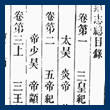 趁下午饭前的工夫,把一个丢下很久的东西的做完了,就是上面链中的历史年表wiki。这份年表起自黄帝时期,终于民国三十八年也就是1949年新中国成立。年表的底本是中国大百科全书历史卷的附录,但是在网上流传的过程中,出现了不少纰缪,尽量仔细的校正了一下,但是难免有所遗漏,如果大家查阅的时候发现,欢迎指正。
趁下午饭前的工夫,把一个丢下很久的东西的做完了,就是上面链中的历史年表wiki。这份年表起自黄帝时期,终于民国三十八年也就是1949年新中国成立。年表的底本是中国大百科全书历史卷的附录,但是在网上流传的过程中,出现了不少纰缪,尽量仔细的校正了一下,但是难免有所遗漏,如果大家查阅的时候发现,欢迎指正。
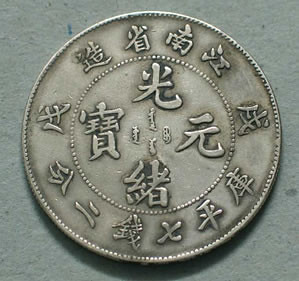
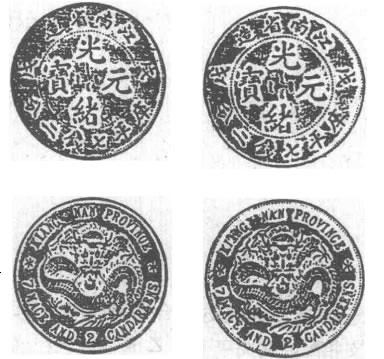
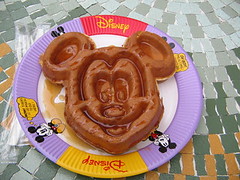 天真无邪的一只米老鼠
天真无邪的一只米老鼠